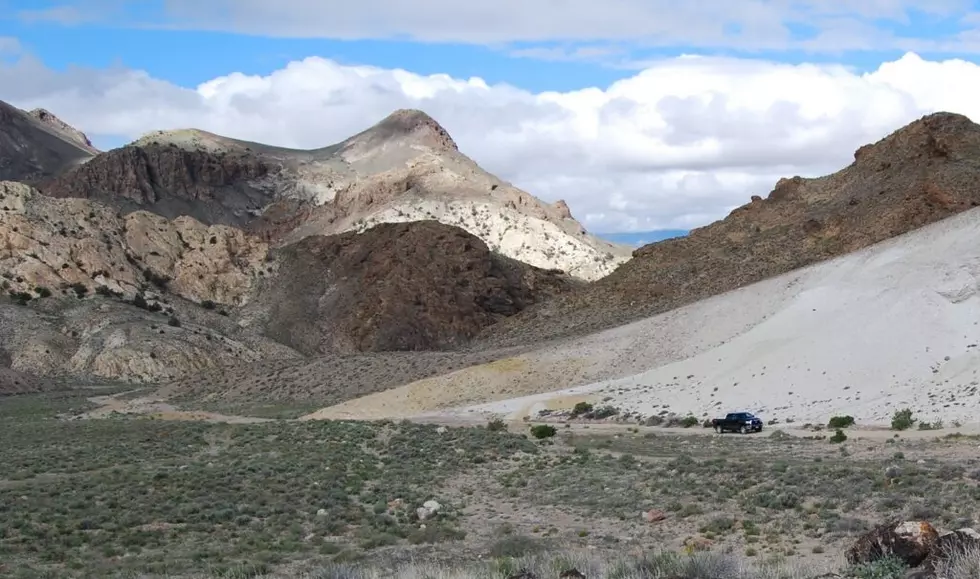
Fight over massive lithium mine in Nevada hits Ninth Circuit
Bob Leal
(CN) — A Ninth Circuit panel heard arguments Tuesday about fears of environmental damage regarding a massive lithium mining operation at Thacker Pass in northern Nevada near the Oregon border.
Lithium Nevada is attempting to mine the largest known lithium deposit in the U.S. The mine is key to helping the nation rid itself of fossil fuels in a quest to stop global warming. Lithium is an essential component for making batteries for electric vehicles.
In their complaint, opponents of the mine say it will have significant negative impacts on wildlife populations. Sage grouse, Lahontan cutthroat trout, mule deer, pronghorn and other wildlife will be threatened, along with water, riparian vegetation and wet-meadow habitats essential for wildlife to thrive, the plaintiffs say.
U.S. District Judge Miranda Du in Reno previously denied an emergency injunction to stop the mine pending appeal to the Ninth Circuit. During Tuesday's proceedings, U.S. Circuit Judge N. Randy Smith questioned why the plaintiffs' attorney Roger Flynn was bringing up the Bureau of Land Management's alleged environmental wrongdoings to the appeals court.
"If you don't like what the BLM did it seems to me you ought to go see the district court, not us," the George W. Bush appointee said.
Flynn responded, "In the meantime thousands of acres of public land are being essentially clear cut."
Smith pressed Flynn to take the case up with Judge Du. "You better get the district court on the stick then," Smith told Flynn. "That particular issue is not here yet. The district court needs to decide whether the BLM did it right,"
Laura Granier, attorney for Lithium Nevada, told the three-judge appellate panel Tuesday the company spent millions on environmental studies and permitting while following the law.
“Lithium Nevada spent over $8.7 million on the environmental baseline and permitting process that is before you that the appellants are challenging. There were no shortcuts. There was no expense spared. Nor was there any corners cut with respect to mitigation,” Granier told Smith and U.S. Circuit judges Kenneth Lee and Lawrence VanDyke, both Donald Trump appointees.
“The environmental impact statement talks about, after all reclamation and all mitigation is done, there is a total of less than five acres of permanent disturbance for wildlife habitat. Less than five acres," Granier continued. "Lithium Nevada took the extraordinary measure of pausing this project for two years before it ever got this authorization because it did a couple of million dollars of exploration so that it could relocate the entire project outside of the Montana Mountains, where there is sensitive environmental areas for sage grouse and other resources. Those are extraordinary measures of avoidance and mitigation that the appellants simply ignore."
There will be extensive ongoing monitoring before mining and as mining progresses to ensure that there will be “early triggers” to ensure that any impacts will be identified and “fully mitigated,” according to Granier.
Flynn called the mining process at Thacker Pass a serious violation of federal law.
“They (Bureau of Land Management) violated the law on numerous occasions, both on what the district court found and what the district court never got to,” said Flynn. "This is the first time in public land history that we have a major project violating a number of provisions allowed to go forward. It’s not five acres. It’s 5,000 acres, 1,300 acres of waste rock alone hundreds of feet high. That’s not public habitat and that’s not wildlife habitat anymore.”
On rebuttal, Granier told the panel the plaintiffs were nitpicking after Lithium Nevada spend boatloads of money.
“No one would spend $150 million permitting a project, defending it in federal litigation and now constructing it for something that was not economically developable,” said Granier.
The profit of the mining project is projected to bring in $1.5 billion annually, according to Granier.
